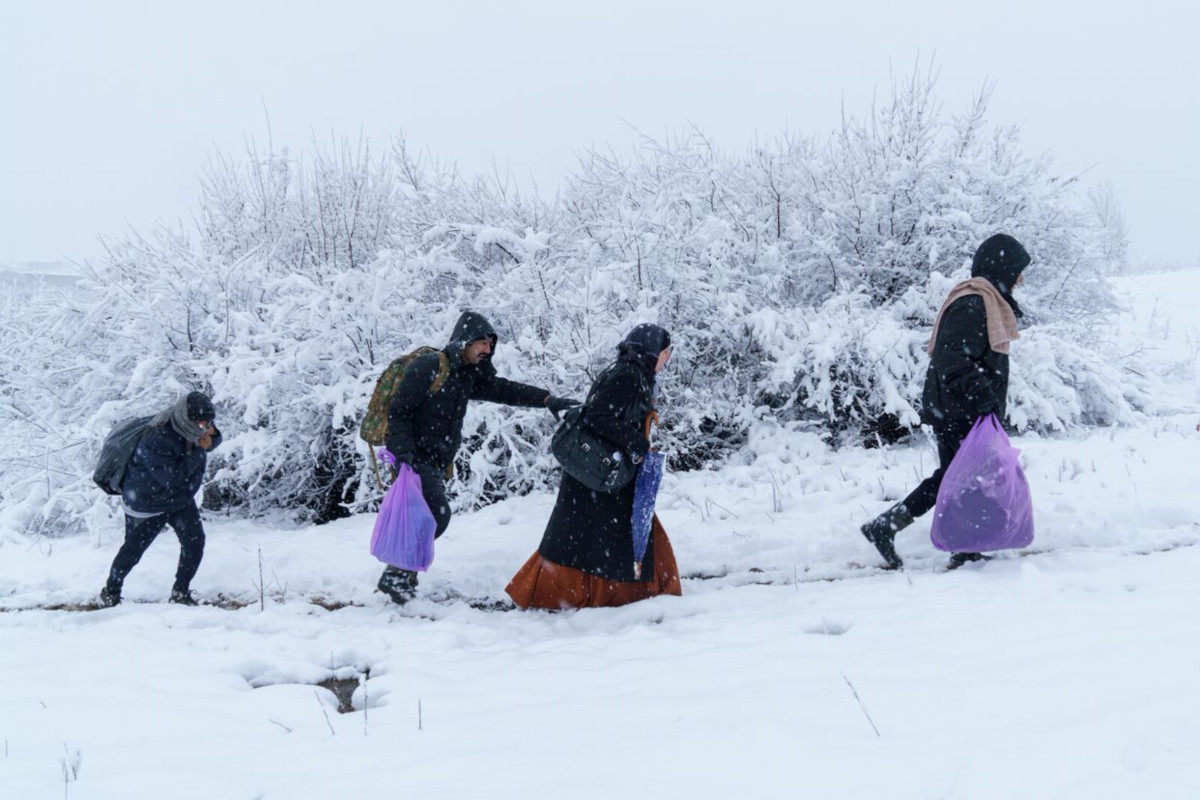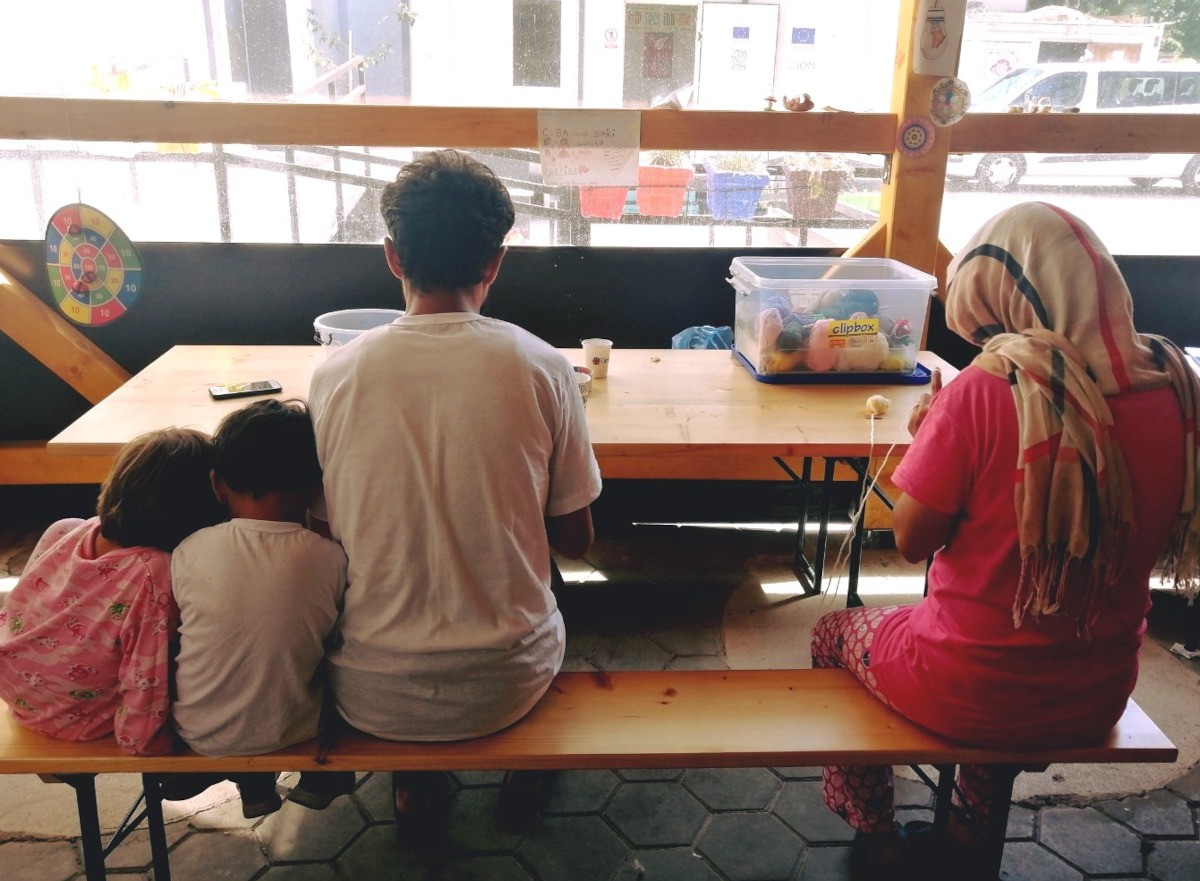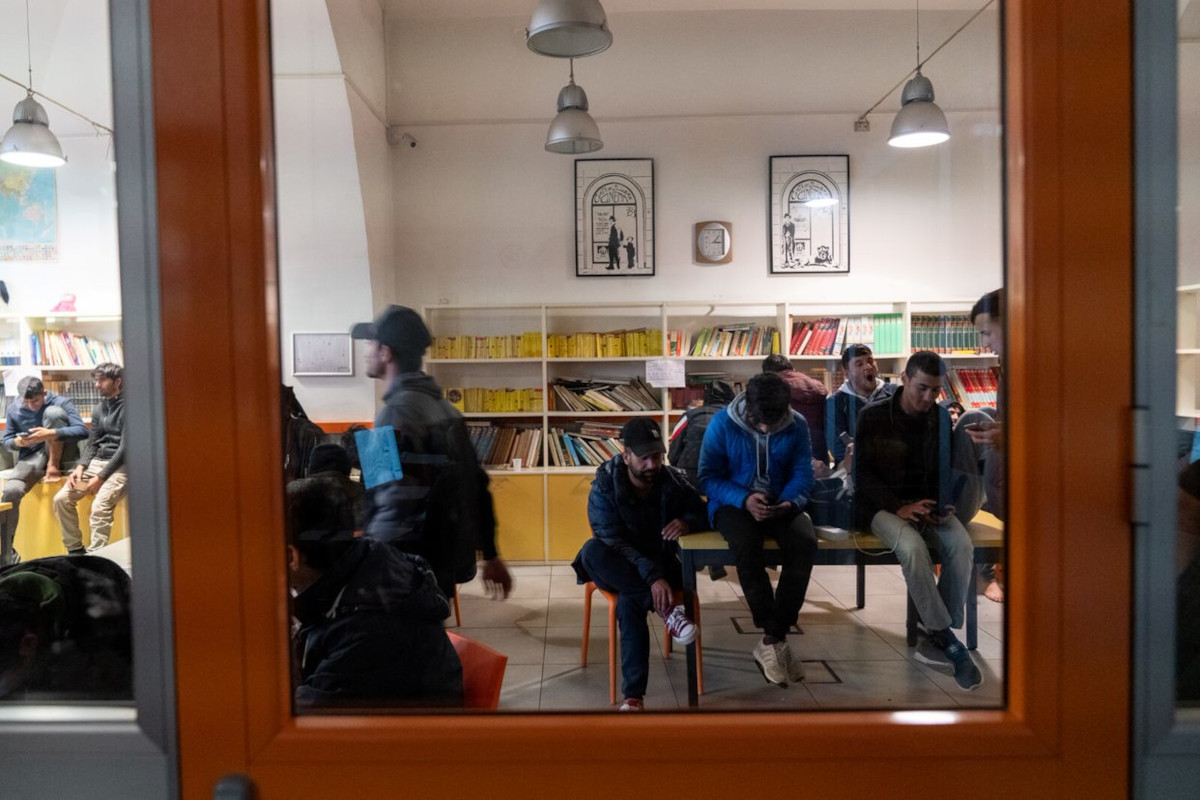
Along the Balkan route© Francesco Cibati (ICS Trieste )
Trieste, a border city, is the last stop on the Balkan route. In 2023 the data recorded an increase in the arrivals of unaccompanied minors. What does it mean to grow up along the Balkan route? What happens once in Trieste? An analysis
“Each of these kids is a world”, says M., a professional educator, who takes care of unaccompanied foreign minors in a first reception community in Trieste, along the border with Slovenia. M. speaks with passion about her work, also telling me anecdotes about life within the community. Being a first contact setting, the facility deals with both providing physical care and collecting testimonies on what happens along the Balkan route. To date, it is individuals like M. who make the difference, who try to guarantee a future for these kids. It should be a community task, but the political will to do it is lacking.
Phantom minors
Comparing the data on arrivals in Trieste in 2023 highlights a first problem: the presence of conflicting numbers. The monitoring in Piazza della Libertà in Trieste, in front of the central station, declares a different number of arrivals compared to that released by the Municipality of Trieste. According to the update on the situation of the Balkan route, collected by the International Rescue Committe Italia and Diaconia Valdese and provided to us by the Italian Solidarity Consortium (ICS ), between January and September 2023, 2316 unaccompanied minors arrived, an average of 8 arrivals per day. This number does not correspond to the data provided to OBCT by the Department of Social Services and Policies of the Municipality of Trieste: 960 minors arrived from 1 January to 7 December this year, but it does not provide data on the number of applicants for international protection.
The explanation for this discrepancy lies in the fact that the monitoring carried out in front of the Central Station also indicates those who do not intend to stop in Trieste, invisible people who, having arrived at the last stage of the Balkan "Game", want to quickly continue towards France and Germany. These minors are not registered by the Municipality so it is as if they did not exist.
Gianfranco Schiavone, president of ICS, explains that the public administration has no interest in implementing a support intervention for these children. In his opinion, a possible solution would be to open more low-threshold facilities with the aim of providing help also to those minors, who sometimes declare themselves to be adults in order to transit more quickly. You can't impose your will on those who don't want to stay in Trieste but, at least, you can lend a hand.
Another possible answer to the problem of "invisible kids" could be to make the system created by the Dublin III Regulation work in practice. Regarding unaccompanoed minors, the legislation establishes that the mechanism of regular transfer from the country of arrival to other member states can be activated based on the principle of family unity. This provides for the transfer of the minor in cases where there is a relative or family member who can look after them in another European country. At the moment, this option is not applied and the administrative procedures take months or even a year. If this possibility were implemented in a functional way, it could allow greater tracking of the minors who arrived in Trieste. In fact, they could travel regularly and safely within European territory, without their tracks being lost on the road.
“This doesn't happen. There is no interest in the minor in transit", summarises Schiavone and adds: "The general interest, morally reprehensible, is that they leave as soon as possible". This creates a hazy situation, in which dozens of minors, of whom no one knows anything, disappear and remain only as numbers on paper, in the total indifference of the system. According to the president of ICS it is the result of a "moment of institutional and cultural degradation".
Growing up along the Balkan route
Nadir, 16, testified to Save The Children: “I tell my brothers not to try the journey I did, because in Bulgaria I was in prison for three months, I was beaten. If you say you're a minor, they don't listen. When they are angry, they just beat you up”. Even the testimonies of the children collected by the Trieste community tell the harsh reality of the Balkan route: beatings, physical violence, sexual abuse. The educator explains that almost all the children she looks after have seen friends die and feel "survivor's guilt". They have been growing up between scars and psychological traumas.
Silvia Maraone, coordinator of Ipsia's projects in support of migrants in Bosnia, talks about the situation of unaccompanied minors on the territory of Bosnia and Herzegovina: “Throughout the Balkans we try to protect minors. The International Organization for Migration (IOM) [which also operates in Bosnia] defines ad hoc procedures in line with the international safeguard policy on the basis of the so-called best interests of the child".
Currently, in the canton of Una Sana, in the Borići facility there is an area reserved only for unaccompanied foreign minors, as required by law. Previously, even in the Bira camp there was a separation between adults and minors and in the Lipa camp there was a division into three sectors: single men i.e. male adults, families and unaccompanied minors. Nonetheless, the division present on paper often does not correspond to reality. The boundaries between the areas are blurred and sometimes the minors themselves make themselves unreachable, declaring themselves adults or remaining together with their compatriots in the informal settlements around the city of Bihać.
Providing correct protection for minors is difficult, explains Maraone: “These kids would need stability, psychological support, and to undertake training and education. Routes that cannot be guaranteed when they stay in the camps only for as long as they need before moving from one side to the other”. Due to the fragility typical of adolescence and the violence suffered, kids seek refuge in the abuse of drugs and alcohol.
Growing up along the Balkan route means facing a struggle for one's survival. Without money, with a history of violence, minors can end up in human trafficking, in some cases into prostitution. “Minors often don't know who to trust”, continues Maraone, who adds: “We have noticed that everyone is relatively expendable and injured people are often left behind. The rule applies: mors tua, vita mea”. Minors are simply more vulnerable to this situation.
Younger and younger
"The numbers change on the route but the problems do not", concludes Maraone. Problems that various actors of European civil society have been denouncing for years. Among these is the Rivolti ai Balcani network, which includes Ipsia and ICS but also OBCT. Already in 2020, the network underlined that the Balkan route was one of the main migration routes and that it presented a clear pattern of externalisation of the EU borders - given the agreement signed in 2016 between the Union and Turkey. Policies that have contributed to, rather than stopped, the continuation of the violation of fundamental human rights.
Along the Balkan route, the violence at the borders and the illegal rejections, the arbitrary detentions and the lack of access to the asylum request have never ended, as denounced several times by European civil society and by some MEPs as well as by the Human Rights Commissioner of the European Council. In a letter signed by more than 50 non-governmental organisations addressed to the leaders of the European Union, the proposal for the European Pact for Immigration and Asylum was denounced [on which agreement was then reached within the EU on December 20, ed]: “If adopted in its current format, it will normalise the arbitrary use of detention of migrants, including families and children, increase racial profiling and use 'crisis' procedures to allow pushbacks and postpone people in so-called 'safe third countries' where they will be exposed to the risk of torture, violence and arbitrary detention”.
In this context, the fact that the average age of minors who are potentially exposed to these dangers is falling is worrying. Already in 2022 the "Abandoned Lives" report promoted by ICS had highlighted an 11% increase in the arrivals of younger and younger unaccompanied minors along the Balkan route. This hypothesis was also confirmed in 2023. As for the situation in Bosnia, at the moment there are many more 13 or 14 year olds, compared to the 16 or 17 year olds of a couple of years ago. In Trieste, M. reports cases of children between 10 and 12 years old.
According to Gianfranco Schiavone, this could also be due to the "crazy rejection policies of the European Union". In Afghanistan, the main country of origin of the minors, attempts are being made to "get to safety" the one to whom one wants to give a future. According to the hypothesis of the president of ICS, families would send away younger and younger children in the hope that, given their age, they would be treated less violently and rejected less. At the moment there is no empirical evidence on this consideration, but this interpretation could provide an explanation to the phenomenon.
Arriving in Trieste
According to data provided to OBCT by the Department of Social Services and Policies of the Municipality of Trieste, in the city there are 11 communities for unaccompanied foreign minors for a total of 300 spots. With respect to territorial integration programmes, each community organises its own internal Italian courses and creates a personalised project for each individual child, also including enrollment in professional training courses.
The reality is that children's lives depend a lot on the community in which they end up. M. says that often, after arriving in Italy, they are simply "parked" within the community.
On this point, Schiavone comments: "When I talk about the reception of minors, differently from what one imagines, I am talking about a very cold, very bureaucratised world, where there is neither a political nor inclusion strategy". The profound disinterest towards these children is also reflected in very long administrative times for the request for a residence permit, hours of queuing under the summer sun or lashed by the winter bora outside the police station to be able to carry out the procedure, rights present on the card which are not actually guaranteed.
Arriving in Trieste means being protected in the indifference of the system until you reach legal adulthood. From that moment, there are two paths: becoming a refugee or finding protection under some "uncle", which allows the boy to find a job and obtain a residence permit. If neither of the two roads is viable, you end up on the street, a “clandestine”. As M. says, it is a high-risk situation because the administrative deadlines are very tight: within 60 days of their birthday, the newly eighteen-year-old must find a job and housing.
After growing up amid violence and deprivation, neglected in Trieste, becoming an adult along the Balkan route means entering the world in a state of constant precariousness.
Trieste, spettacolo 21 dicembre
The play "6 Sei - Šest" by the Mladinsko theatre in Ljubljana "6" talks about an episode that happened in 2016, when an attempt was made to find accommodation for six unaccompanied minor refugees in the student house in Kranj, but the opposition of parents and the local community prevented the initiative.
Solidarietà
A network of organisations and activists who work together in solidarity and support for migrant people arriving in Trieste from the Balkan route started a fundraiser. Travel conditions have worsened with winter, as people are rejected, tortured and deprived of their basic goods. And upon arrival in Trieste they find themselves living in inhumane conditions. For donations see the link.
blog comments powered by









